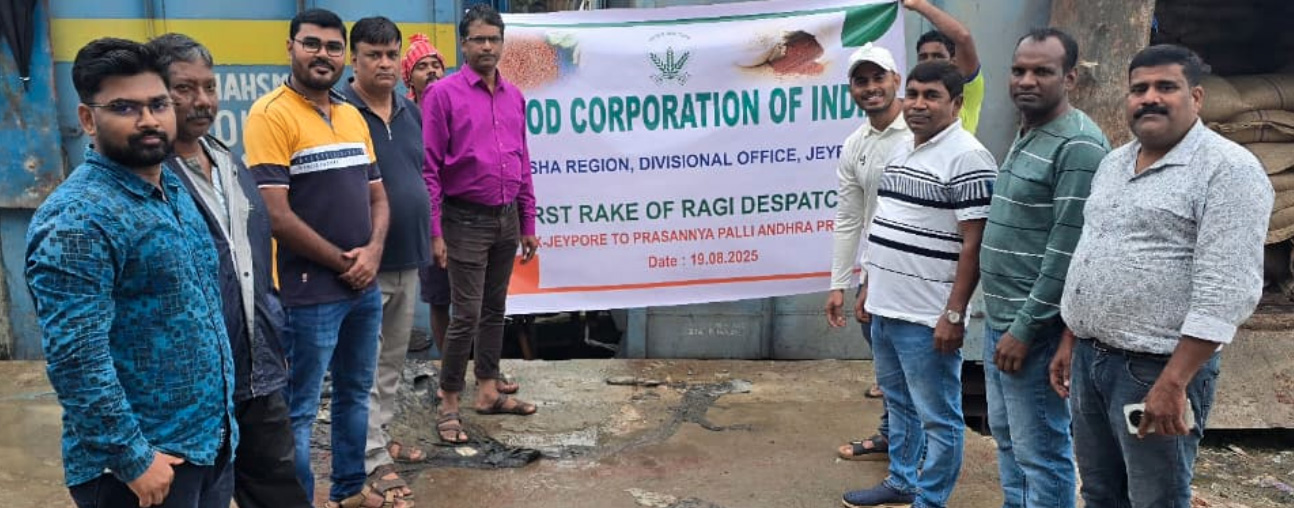Jeypore: The Food Corporation of India (FCI) has taken a decisive step in strengthening Odisha’s agricultural sector by initiating a massive inter-state transfer of millets, with the first consignment of 25,000 quintals of ragi (finger millet) recently dispatched from the Jeypore depot to Andhra Pradesh.
This move is a testament to the growing success of the Odisha Millet Mission (OMM) and highlights a crucial partnership between the state’s farmers and a national agency.
According to a senior official from the Department of Agriculture and Farmers’ Empowerment, this is just the beginning, with more millets slated to be sent to Karnataka and the North Eastern States. The FCI’s decision to procure such a large volume of millets is being hailed as a major boost for farmer confidence and the overall millet ecosystem in Odisha.
Historically, millets like ragi were a dietary staple in the Koraput district, known for its large tribal population, but their cultivation had declined. The OMM, a government initiative led by Principal Secretary Dr. Arabinda Kumar Padhee, successfully motivated local farmers to adopt improved farming techniques. This has led to a significant increase in both the area under cultivation and the overall yield, allowing farmers to produce a surplus for the first time in years.

The FCI’s involvement has transformed this surplus into a stable and profitable income source. By procuring the high-quality millets produced in the state, the national agency is providing a guaranteed market, which is a crucial factor in building farmer confidence and securing their financial future.
The act of a national agency validating the quality and quantity of the produce is a powerful endorsement of the farmers’ hard work and the effectiveness of the OMM.
FCI Jeypore Depot Manager Shri Pushpendra Singh expressed his satisfaction, noting that the despatch of this large quantity to a neighboring state demonstrates the immense production and market potential of these traditional crops.
This collaborative effort has not only revived a traditional farming practice but has also positioned Odisha’s farmers for economic growth and stability.


